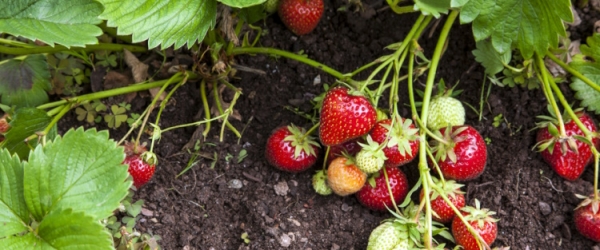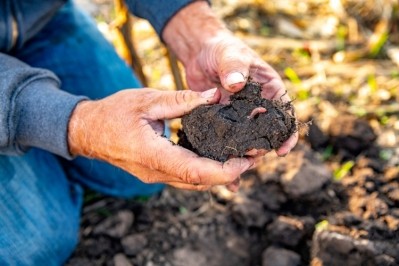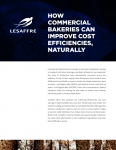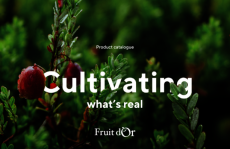RegAg is no longer just a buzzword: But how can the bakery sector to get involved?

Evolving consumer demand serves as a motivating factor for companies like fruit & veggie ingredient supplier SVZ to take the lead in advancing the journey towards a more regenerative future.
“Consumers are no longer interested in staple bakery products that can outlast the ages; they crave the vibrancy and vitality of fresh, nourishing ingredients grown with care and respect for the environment,” Silvi Navarette, SVZ’s sustainability manager told Bakery&Snacks.
“In fact, 55% of Europeans are more likely to choose a snack product with some form of sustainability claim [Food & Beverage Insider].
“In a nutshell, sustainability is becoming more crucial – and regenerative farming takes this one step further.”
According to the United Nations, food systems are responsible for 34% of the total human-caused greenhouse gas (GHG) emissions. Roughly two-thirds of these come from agriculture, land use and changes in land use.
No longer just a buzzword or passing trend, RegAg is a fundamental transition towards a food system that nurtures and restores soil health, safeguards the climate and water resources and preserves biodiversity, ultimately improving the farms’ productivity and profitability.
“Over the past century, as agriculture became increasingly focused on output to support the growing global population, we designed a food system reliant on swathes of monoculture, heavy tilling and chemicals,” said Navarette.
“However, these intensive practices negatively impact soil condition, water consumption, nutrient availability and biodiversity.
“Unlike conventional agricultural practices that focus solely on yield and profit, RegAg prioritizes the health of the soil, local ecosystems and the communities that rely on them. It's a holistic approach that seeks not only to reduce emissions but also to store carbon in the soil, promote biodiversity and conserve water resources.”
She admits that making the transition from current methods to regenerative farming will be a challenge, but it’s now critical to ensure a resilient and robust food ecosystem for generations to come.
Helping RegAg take root
“As a ‘downstream’ business, we recognize that we bear a collective responsibility to not only reduce emissions but also actively replenish resources,” Navarette told this site.
“Regenerative farming offers a pathway both to mitigate our environmental impact as well as actively restore and enrich the ecosystems that sustain us.”
Adopting RegAg practices, however, is a costly journey that requires more than initial resources and short-term incentives. Changing equipment, sourcing new materials and undergoing extensive training are all essential but expensive endeavours.
What’s more, although farmers can expect to produce the same – or higher – output with lower operating costs once the soil is regenerated, this can take several years.
As such, “farmers are generally, and understandably, cautious about taking risks, so it’s our responsibility to make a business case for regenerative agriculture,” she said.
“Its feasibility relies on evaluating the long-term consequences of maintaining the conventional farming model, emphasizing not only the financial aspect but also the ecosystem services generated by the farm.”
She believes that farmers shouldn’t bear the burden alone.
“The full cooperation of the industry is needed for RegAg to have the impact it desires and deserves. It must be a mutually beneficial pursuit with mutual effort exerted across the supply chain.”
She added ingredient suppliers are perfectly poised to help by adapting their sourcing practices to prioritize and invest in regenerative farming partnerships, including matching funding, paying a price premium for raw ingredients and committing long-term to certain volumes of a specific crop.
“Producers of baked goods and snacks, too, can play their part by forging partnerships with their ingredient suppliers to champion sustainability projects. It’s also important to clearly communicate the benefits of regenerative farming to consumers so they better understand the added value offered and drive further demand.”
Sowing the seeds
Navarette noted SVZ’s approach to regenerative farming is not just about planting trees or ticking boxes.
“It's about ‘cultivating’ the right mindset and understanding the potential of what nature can offer. True transformation requires a long-term perspective and a willingness to invest in the future. That’s why we offer support to our partner growers, encouraging them to embrace regenerative practices that yield both environmental and economic benefits.
“In Spain, for example, where water scarcity looms large, we’ve been exploring innovative solutions that marry regenerative agriculture with better irrigation practices and cutting-edge tech.
“By optimizing water usage and reducing fertilizer dependency, we aim to ease one of the farming community’s biggest pain points – rising commodity costs – at the same time creating a more resilient environment for growing ingredients. We’re also investing in small-scale pilot programs and peer-to-peer learning initiatives, leveraging the power of community to drive meaningful change at grassroots.”
She went on to say that at corporate level, SVZ is decentralizing the responsibility of sustainability and integrating it deeply into its framework.
“This commitment is evidenced by our progress. This year, we achieved 74% sustainable sourcing of core ingredients in our supply chain and have set our sights on an ambitious goal of 100% sustainable core ingredients by 2030.”
A fruitful future
“Regenerative farming is not just about reimagining our relationship with the land; it's about redefining our role as stewards of the earth,” said Navarette.
“As RegAg becomes less niche and more mainstream, we expect it to extend to more socially responsible initiatives, as well as focusing on tangible data from corporate reporting and performance benchmarking.
“Whatever direction this journey goes in, one thing is clear; it will require collective action, unwavering commitment and a steadfast belief in the power of partnership. Together, we can ensure that every bite satisfies the hunger for a better, brighter and bountiful future.”



















